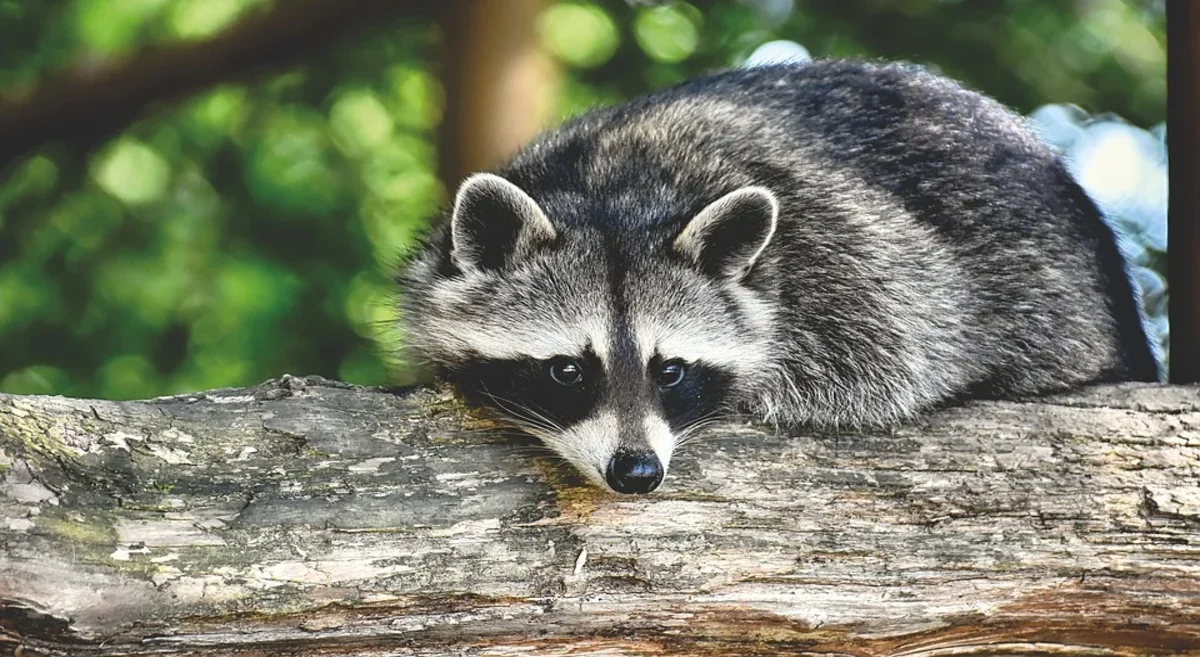
Can raccoons be pets: Find out now - Image Source - Pixbay
As cute and beautiful as raccoons may look, the truth is that they are not good pets. It is illegal to take animals from the wild, but unfortunately you can buy raccoon puppies from licensed exotic animal breeders. We do not recommend this and will explain in detail.
But before you go to the article join our telegram channel and stay up to date with everything about the world of pets, like care, curiosities and more. Click here!
Raccoons are very intelligent and super mischievous. Left unattended, they can destroy a house and its furniture very quickly. Adult raccoons, in particular, can also be very unpredictable around people and pets.
It is very difficult to find veterinarians and babysitters to care for raccoons, and they harbor a number of diseases that can pose health risks to you and your family.
Raccoons that are purchased as pets may be in the wild, so human caregivers should be quite willing to make a 10 to 15 year commitment to an animal that usually requires 24 hour supervision.
Raccoons are wild animals. It is unethical and illegal to capture a healthy wild animal and force it to live the rest of its life in captivity for any reason, and especially to amuse its human captors. Licensed wildlife rehabilitators are trained to care for raccoons that are sick or injured until they can be returned to the wild. They are also trained to prevent young animals from being socialized with people and pets.
However, some rehabilitated animals have permanent injuries that prevent them from surviving on their own in the wild. Rehabilitation facilities or wildlife educators may apply for special licenses that allow them to care for these animals for the rest of their lives. Part of the criteria for being able to care for a permanently damaged wild animal is to demonstrate that you are able to provide a species-appropriate diet, large-scale enclosures with natural environmental enrichment, exercise, and also foraging opportunities.
Unfortunately, humans seem to be attracted to pets that are rare or unique, including wild animals. This has led exotic animal breeders to acquire licenses to breed and sell animals that I believe should never be pets. And raccoons fall into this category.
I cannot emphasize this enough: raccoon and pet are mutually exclusive. Raccoons are wild animals, not pets, and even domesticated raccoons are extremely high maintenance and they require an experienced and knowledgeable owner. Even several generations of captive-bred raccoons demonstrate all of their wild instincts throughout their lives.
So, housing a raccoon can be quite an insurmountable challenge. Allowing them to run your home is not feasible, as this little fellow is extremely destructive to belongings (including door frames and furniture) and they are quite unpredictable around people and pets. However, confining a raccoon in a cage, room, or other confined space is simply confining a wild animal, which is inhumane.
Raccoons are not very easy to train at home. So if you can’t teach him to use a litter box consistently or convince him to walk on a leash and you are willing to put him outside on your (unpredictable) business plan, beware that he will relieve himself all over the house
Raccoons are notorious biters. They will bite family members, pets, and visitors and their pets.
Many veterinarians have little or no experience treating raccoons, so finding medical care for a sick raccoon can be very challenging. When you visit the veterinarian, you must present proof of purchase or there is no way to prove that you did not illegally release the animal into the wild. If you own a raccoon that came from the wild, you risk having the animal confiscated and also being fined.
We know that there are passionate raccoon advocates out there. However, our experience is that several raccoons purchased legally become unpredictable adults, where they end up having behavioral problems and even being put down. Our goal in writing this article is to prevent this from happening and to encourage people who are considering buying a wild animal as a pet to reconsider their choice.
Remember, there are plenty of homeless pets out there – dogs, cats, gerbils, birds, rabbits, hamsters, gerbils and more – in shelters and foster homes across the country that would be forever grateful for a place in your home and hearts. That’s why we urge you to think: why bring home a wild animal that prefers to live wild when so many real pets are waiting at your local shelter?
Welcoming a dog into your life is one of the most rewarding experiences. But along…
From cozy homes in the American suburbs to bustling urban cities, pets have a special…
To own an exotic pet is to immerse yourself in a unique world. Whether it's…
The unconditional love that our canine friends give us is truly unique. As responsible owners,…
Dogs, our loyal and loving companions, have a range of preferences and pleasures that contribute…
Introduction to the Pomeranian Breed The Pomeranian, often lovingly referred to as the "Pom," is…
This website uses cookies.